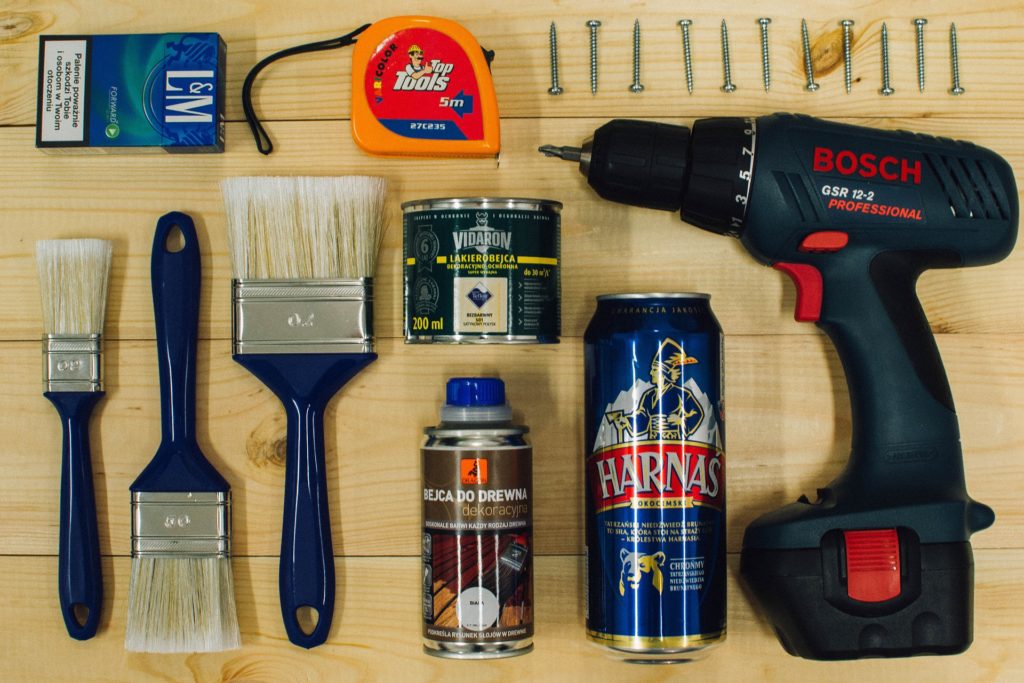Ask Brian is a weekly column by Real Estate Expert Brian Kline. If you have questions on real estate investing, DIY, home buying/selling, or other housing inquiries please email your questions to [email protected].

Question from Phillip in WA: Hello Brian. I’d say that I’m an intermediate when it comes to home improvement projects. My carpentry skills are decent. The last project I did was building a swing set for the kids. I honed my plumbing skills by replacing the dishwasher for my wife and I’m comfortable with electrical as long as I can turn off the circuit breaker. The question I have is when does it make more sense to hire a professional rather than take on a project myself? The rain gutters are looking shabby on our 25 year old house and I want to replace them. But I also want to be safe by putting up scaffolding instead of trying to do the job from a couple of ladders. When I went to Lowes hardware to price the cost of doing this myself, the dollars didn’t seem to favor me doing the job myself. A contractor quoted me $825 for everything including materials. My own estimate after talking with the guy at Lowes is about $675 for materials and to rent scaffolding. That doesn’t include my time for a long weekend of hard work. Nor does it include an inevitable trip back to the store for something I’m sure to have forgotten. What’s a good way of deciding that hiring a professional is the better route even if I’m confident that I have the needed skills?
Answer: Hi Phillip. Great question. Just because you can do a project, doesn’t always mean you should do it. Of course, the money plays a big role in the decision. From a purely dollar point of view there is a simple formula that I think works well. Total savings divided by hours needed to complete the project. All you need to do is subtract your costs from a professional estimate and divide by the number of hours you think it will take you to do the job.
However, I think your time is probably worth more than just dollars. Every hour you work on a project is an hour you could spend with your family or doing something you would rather be doing. If the formula shows a good return on your time, it’s probably a good project to pursue yourself as long as you’re not working on DIY projects every weekend. Something you might want to do is consider weekend project hours as overtime from your weekday job. In the formula, you could use 1 ½ times your weekday hourly rate. So if a project will take you 16 hours and your 1 ½ rate is $30 per hour, that 16 hours is worth $480 of your time. Phillip, ultimately you’re going to have to decide how much your time is worth.
The complexity should also be part of your decision. If you can replace a kitchen sink before noon on a Saturday and still get out for other activities, it’s a good DIY project. If you’re going to spend the next four months of weekends doing a complete remodel of the kitchen, you should put a lot more thought into hiring a professional. Doing a full remodel likely means you’ll need to rent or purchase tools that you don’t already have. If you buy the tools, will you use these specialized tools again in the next five or six years? Online tutorials are a good way to understand the complexity of a project you haven’t done before. A good tutorial will estimate how much time is needed along with list all of the tools you’ll need.
Complexity also involves the skills you already have compared to new skills that you’ll have to learn. If you’re going to learn new complex skills, plan on a few mistakes and doing a few things out of sequence. Those will add time and costs to the project. You should also think about if you’ll ever use those skills for another project. But hey, learning new skills can be fun so include that part too.
Last but not least is safety. Can you do the job safely? You might burn yourself using a hot glue gun but it’s probably worth the risk. On the other hand, if you pull new wiring for a 220 volt dryer to relocate it from the garage into the house, you might risk burning down the house if you do the job wrong. Phillip, you seem to get this part since you were already going with the scaffolding to replace the rain gutters. Again, those online tutorials will help you stay safe with other projects.
Other readers certainly consider other factors when deciding between a DIY project and hiring a professional. Please share by writing your comments.
Our weekly Ask Brian column welcomes questions from readers of all experience levels with residential real estate. Please email your questions or inquiries to [email protected].